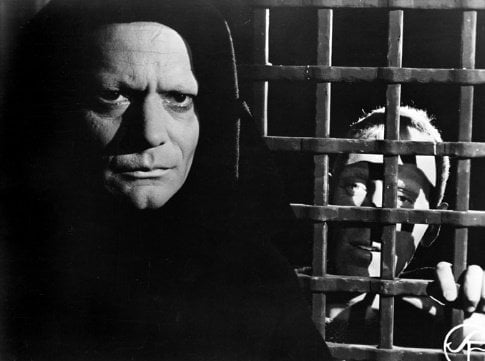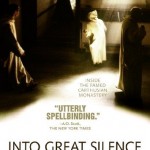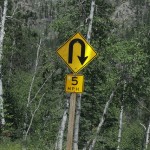We see the knight, Antonius Block, the seeker of philosophical and empirical certainty. We see him grapple with the hiddenness and silence of God. We see him even seek out a young girl who has been labeled a witch because he hopes that she can introduce him to the devil; surely the devil would be one who for sure would have empirical knowledge about God! (This calls to mind the approach of Scott Derrickson, director of horror films such as The Exorcism of Emily Rose. Derrickson believes that awareness of the evil in the supernatural can actually reveal the reality of the supernatural found in God.) But even Block’s beseeching of the young girl to give him answers leaves him with silence.

In one particularly affecting scene, Block enters confession and expounds his deepest doubts about God and his intense struggle with God’s hiddenness in the midst of human suffering. With great pathos, Block cries out that he wishes he could “kill” God within himself, but somehow God still persists. Even as he struggles to know and understand God, he can’t get rid of him either. I couldn’t help thinking about agnostic friends who persist in some sort of faith despite deep doubts. There is a certain unshakability to their sense of God, maybe to their frustration. I also couldn’t help but think of my own battles with doubt, some of them very deep and dark, and yet of how faith persists. Sometimes faith is painful when we don’t understand the silence of God.
We see the circus performers who mock death, who laugh and embrace the moment, even as unbeknownst to them, Death hangs directly over them and their sweet, bare-bottomed baby: they have come in contact with the plague without knowing it. Yet, we are struck by the joy and love that characterizes their lives and the embrace of the beauty of the physical world, even as we fear they will not survive, cannot survive.
We see the pragmatic, cynical squire, just doing what he has to do to get through the day, caring nothing about morality or about service to others, living only for himself.
We see the medieval painter (modeled after a real-life painter, Albertus Pictor, who was the genesis of the concept for the film. Pictor painted a knight playing chess with Death.) The painter depicts the horrors of the plague in vivid detail, as well as the attempts of the townspeople to regain the favor of God whom they think is displeased with them.
We see the aforementioned young girl (merely a child!) called a witch and sentenced to death. She does seem very disturbed, but whether her condition is truly engagement with evil or whether it is mental illness is not definitively settled in the film. At any rate, the townspeople who are being assailed by the plague essentially decide she is expendable. They chain her up and then burn her at the stake, an act the film portrays with great sorrow and visceral horror, despite showing very little of her actual end. In the death of the young girl, I was struck with imagery that suggests Christ’s death on the cross. As Block and his companions tend to the young girl, comforting her before her death and giving her something to ease the pain, I could not help thinking of the wine given to Christ on the cross and of the women who gathered to comfort him. Could Bergman be saying something about how Christ enters into the pain and sorrow of our broken world? It may well be, for a reason I’ll mention below.












